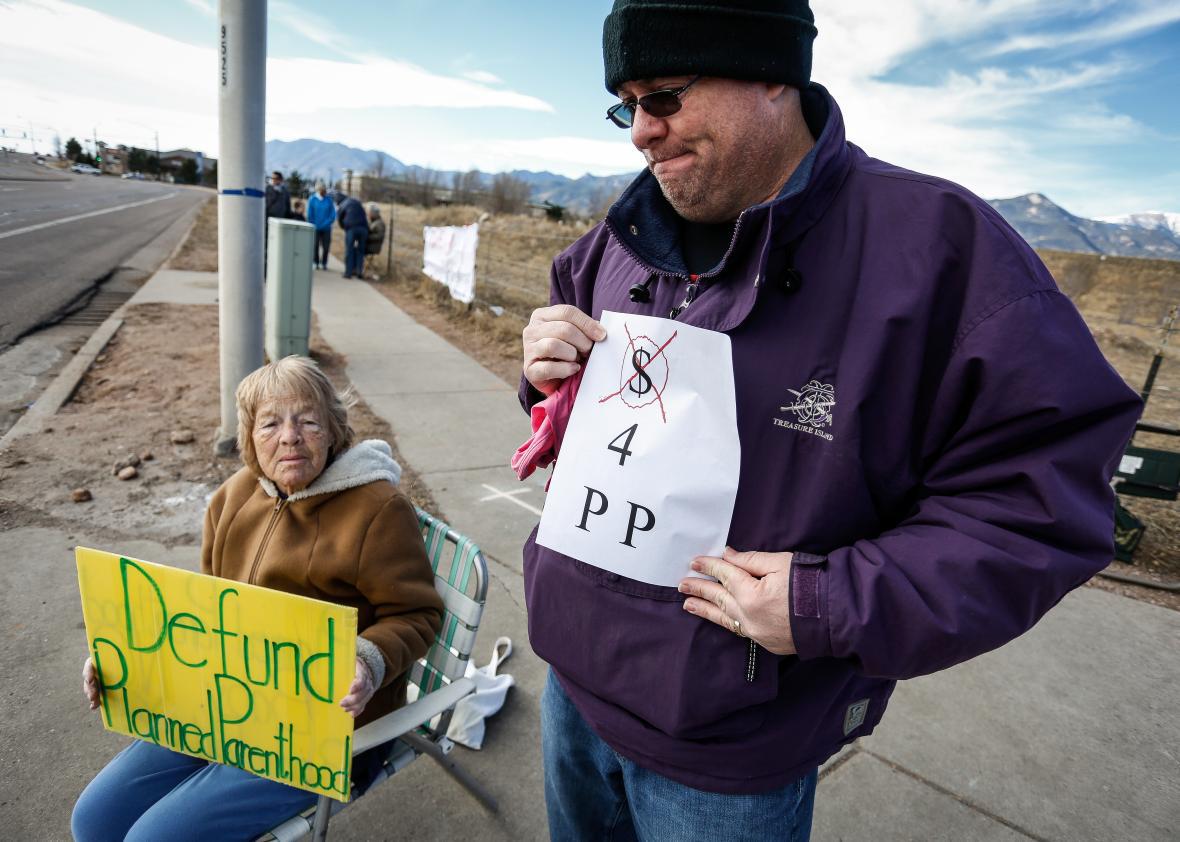The House of Representatives voted on Thursday to repeal a rule Barack Obama signed in December as a Hail Mary effort to protect Planned Parenthood from GOP defunding efforts. The rule reiterates that state governments may not block federal family-planning funding from specific health care providers for any reason other than their ability to competently provide family-planning services. In other words, state legislators cannot deny Title X grants to certain clinics just because they offer abortion care.
Advocates for Thursday’s bill, which would roll back Obama’s Department of Health and Human Services rule if it passes the Senate and is signed by Donald Trump, say that states should be able to choose exactly how and where to spend the money the federal government gives out through Title X, the nation’s nexus of family-planning grants. This would make it easier for states to justify withholding federal funds from certain health care centers for political reasons, putting reproductive health clinics at risk of closure or hampered ability to provide care for uninsured and low-income patients.
When politicians talk about “defunding” Planned Parenthood, they’re usually talking about blocking affiliated clinics from accepting Medicaid reimbursements, which means blocking Medicaid patients from getting care including cancer screenings, contraception, and HIV testing at Planned Parenthood clinics. (Federal dollars are already ineligible for use in abortions in all but very few specific circumstances.) Planned Parenthood gets about 75 percent of its federal funding from these Medicaid dollars.
The other 25 percent is in the form of Title X grants, which funds family-planning services like contraception for more than 4 million people in the U.S. each year. Planned Parenthood serves about 1.5 million of those patients whose care is subsidized through Title X, and its clinics get Title X grants because they prove they’re best able to provide that family-planning care. If states decide to reroute that funding elsewhere, it will likely go to less-equipped or overburdened clinics, while Planned Parenthood clinics and other abortion-care providers struggle to stay afloat. Some states, like Florida, have recommended that low-income patients in need of reproductive health care get their pap smears and birth control from dentists and elementary school nurses if Planned Parenthood loses funding and can no longer meet their needs.
No court has upheld any state’s attempt to defund Planned Parenthood by cutting off Medicaid reimbursements—federal judges stymied such efforts in Mississippi and Kansas last year. And several courts have already ruled that state measures attempting to defund Planned Parenthood are unconstitutional, because the First Amendment prevents the government from denying funding to particular groups just because they exercise a constitutionally-protected right (in this case, abortion care) that legislators don’t like. Federal courts in Florida and Ohio have decided as much, as well as a panel from the 10th U.S. Circuit Court of Appeals, which blocked Utah’s attempt to deprive Planned Parenthood of funding because its clinics provide abortion care. A few judges on the 10th Circuit wanted to rehear that case and possibly give Utah the right to discriminate against health providers for providing constitutionally protected medical care, but they were outvoted by their peers. One of those dissenting judges was Neil Gorsuch, the far-right conservative Trump has nominated for the open spot on the Supreme Court.
